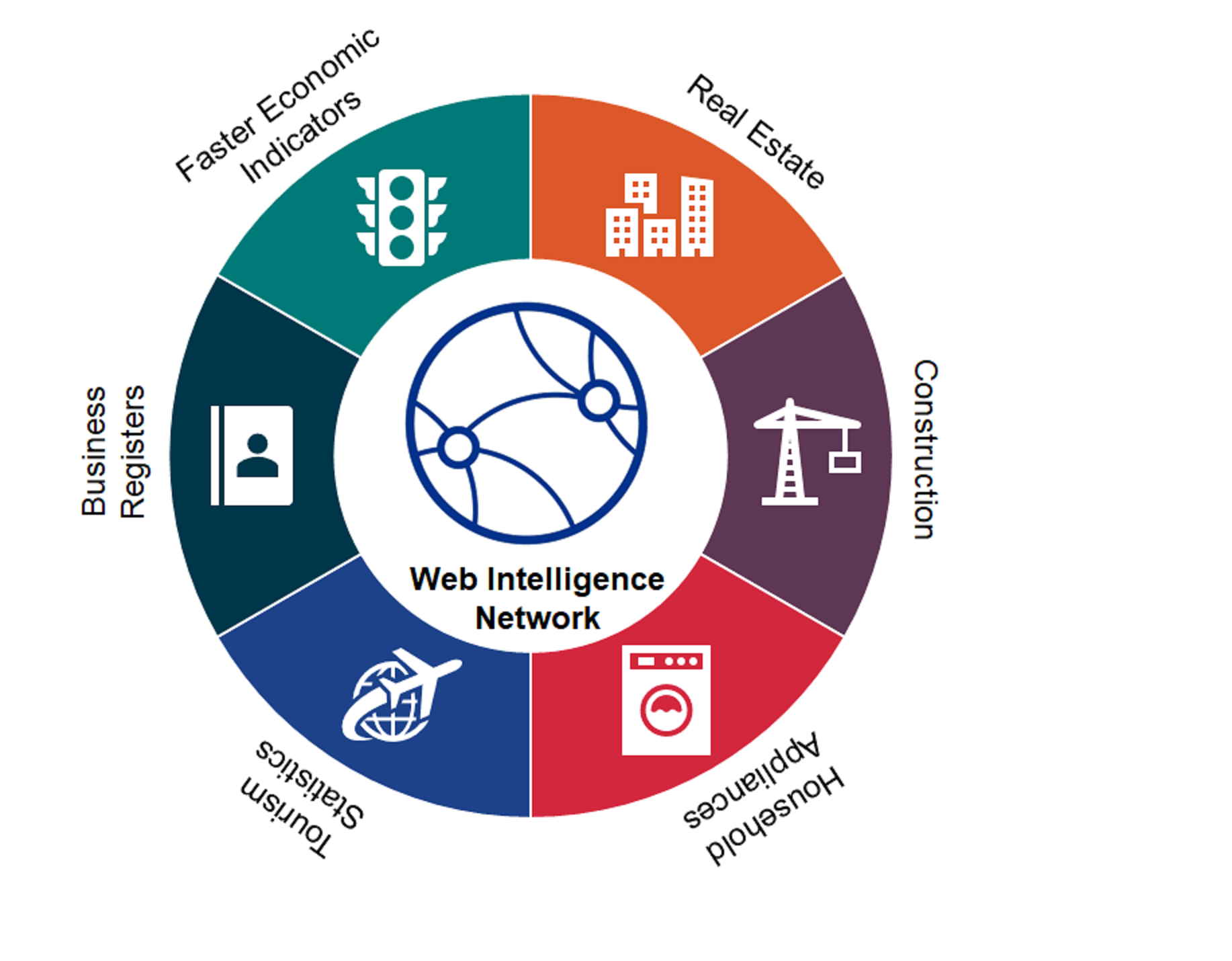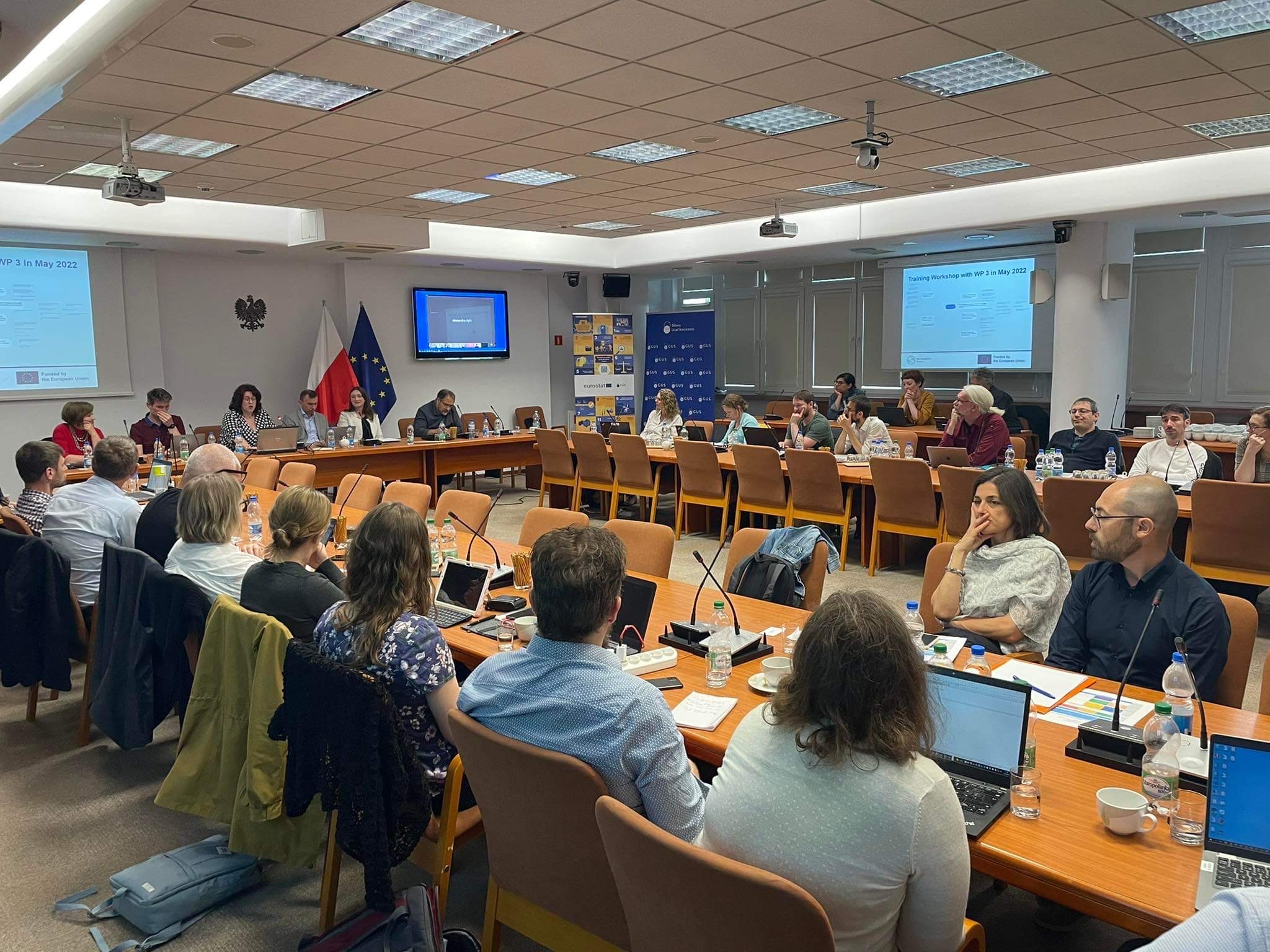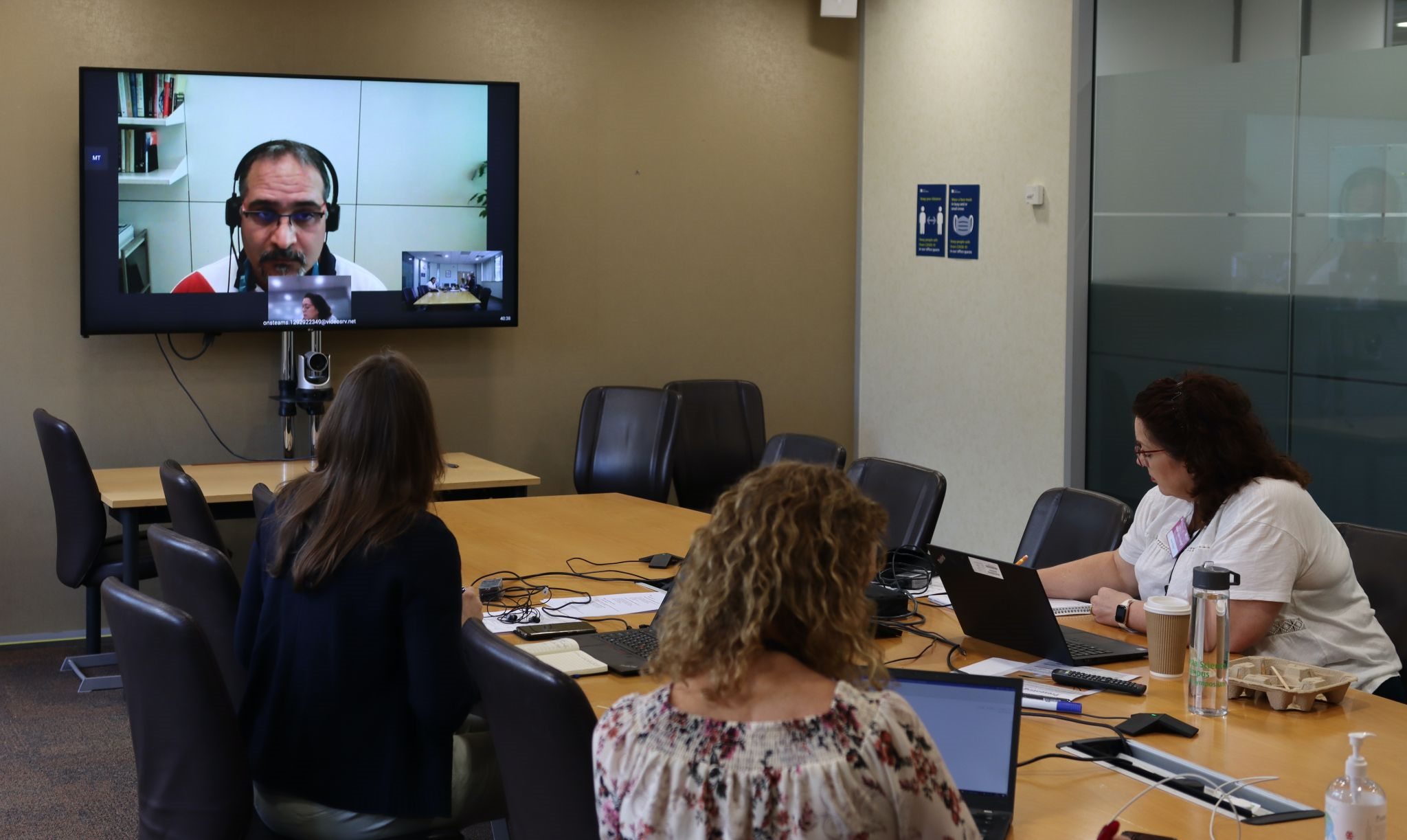Advancing official statistics through web data and international partnerships

The Data Science Campus (DSC) International team works with international partners to influence the role of data science globally, ensuring that it becomes an integral component of a Global Statistical System that works for all National Statistics Organisations (NSO). We lead and assist our partners with the development of globally recognised data science standards and frameworks to bring big data and data science into the everyday production of official statistics.
We play an important role in enabling strong and meaningful partnerships between NSOs and other official bodies in order to accelerate change.
We have been partnering with the European Statistical System Network (ESSnet) Trusted Smart Statistics – Web Intelligence Network project (WIN) since April 2021. ESSnet was developed by Eurostat, the statistics division of the European Union (EU), with the objective of providing comparable statistics at EU level for all members.
The WIN project’s purpose is to provide a sustainable and fully operational platform, the Web Intelligence Hub (WIH), to enable the production of official statistics with data, which are sourced and structured from websites (web data) to benefit the ESSnet and beyond.
The project covers experimental research, methodology and quality frameworks, knowledge sharing and capability building, and software development in the web intelligence space.
The project is funded by the European Union until 2025 and led by Statistics Poland, in collaboration with partners from 17 organisations from 14 different countries.
By the end of the project, ESSnet is expected to have a sustainable and fully operational environment for producing official statistics using web data at the European and national levels. The flexible and modular environment embodied in the WIH will deliver the desired outcome grounded in a solid methodological framework.
The project has four work packages.
Work Package One builds awareness of the WIN and WIH, focusing on capability building and user engagement. To support this work package, we have set up social media channels to promote the project and are delivering a selection of webinars.
Work Package Two develops software to gather data from online job advertisements (OJA) and online-based enterprises characteristics (OBEC).
Work Package Three explores the potential of non-traditional new data sources to be integrated into the WIH to produce experimental statistics. The Campus team developed a version of its Traffic Camera project that could be accessed without complicated infrastructure. It produced faster economic indicators by exploring open-source traffic camera data to understand the busyness in city centres around the UK and to provide insights on the levels of social distancing during the coronavirus (COVID-19) pandemic. It has also used the data to track the upturn of the economy as lockdown restrictions were relaxed. The team has made the system more accessible to ESSnet users and has helped the Swedish NSO to adopt the project.
Work Package Four is developing comprehensive business architecture, methodology, and quality framework for producing official statistics with web data. We supported this work reviewing quality frameworks for Online Job Advertisements.
In June, the team met at Statistics Poland in Warsaw. It was a brilliant opportunity to enhance collaboration and knowledge sharing.

Following this, we held an in-person international meeting at the Data Science Campus to advance international collaboration. Work Package One took advantage of this to design capability building initiatives for 2022. This led to our Communications and Capability strategies, webinar series from October 2022 to February 2023 and an in-person workshop in Brussels in March 2023. The training programme for 2023 to 2024 is underway, so please contact us for further information!

Dominika Nowak, ESSnet WIN project lead, Statistics Poland said:
“The Campus is playing a critical role in the project with regards to building a community of the WIH users across the ESS and beyond. DSC is responsible for extensive networking, external communication, coordinating the development and provision of training on various aspects of the use of web data in official statistics. These activities are crucial for the project to achieve its ultimate goal, which is to ensure broadest possible employment of WIH services by European NSIs and other producers of official statistics. I look forward to continuing this productive and successful partnership for the next 2 years.”
The project delivers at least five training and networking events each year and presentations at important statistical conferences such as the New Techniques and Technologies for Statistics 2023 Conference and the 64th World Statistics Congress to help grow awareness of research topics and training courses, encouraging use of WIN and WIH services to increasing project impact.
The training events have been popular across NSOs, with the first and second webinars attracting more than 200 delegates each, across 46 countries globally. Webinar recordings are available on the WIN project’s YouTube channel.
Christophe Bontemps, Statistician and Lecturer, UN Economic and Social Commission for Asia and the Pacific (ESCAP) said:
“I found remarkable the collaboration among many European experts so that the work can be used and easily adapted to any other statistical office.”
Camille Harris, Principal Statistical Methodologist, UK Office for National Statistics said:
“I thought the level at which it is pitched is perfect as it’s accessible for people with various technical expertise.”
David Salgado, Subdirector General for Methodology and Sampling Design, Institute Nacional de Estadistica (INE), Spain said
“Very good presentations from experts that did not focus on the technical aspects too much but addressed the real issues and questions to ask beforehand.”
Leveraging global partners’ technical skills and knowledge on the use and application of WIH services strengthens the global statistical system, produces better statistics, improves decision making and, ultimately, improves lives globally. We are so proud to be part of it!